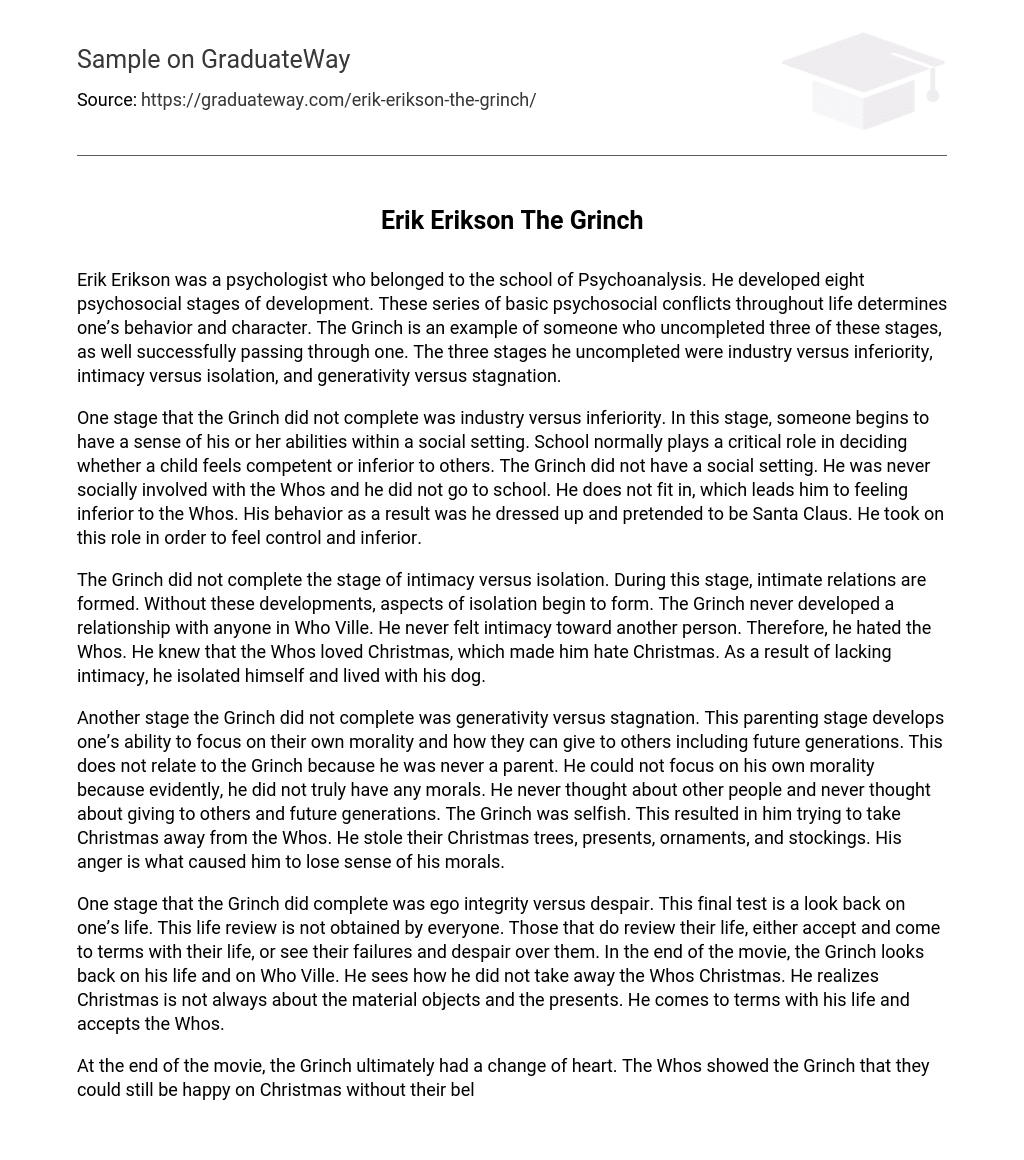Erik Erikson was a psychologist who belonged to the school of Psychoanalysis. He developed eight psychosocial stages of development. These series of basic psychosocial conflicts throughout life determines one’s behavior and character. The Grinch is an example of someone who uncompleted three of these stages, as well successfully passing through one. The three stages he uncompleted were industry versus inferiority, intimacy versus isolation, and generativity versus stagnation.
One stage that the Grinch did not complete was industry versus inferiority. In this stage, someone begins to have a sense of his or her abilities within a social setting. School normally plays a critical role in deciding whether a child feels competent or inferior to others. The Grinch did not have a social setting. He was never socially involved with the Whos and he did not go to school. He does not fit in, which leads him to feeling inferior to the Whos. His behavior as a result was he dressed up and pretended to be Santa Claus. He took on this role in order to feel control and inferior.
The Grinch did not complete the stage of intimacy versus isolation. During this stage, intimate relations are formed. Without these developments, aspects of isolation begin to form. The Grinch never developed a relationship with anyone in Who Ville. He never felt intimacy toward another person. Therefore, he hated the Whos. He knew that the Whos loved Christmas, which made him hate Christmas. As a result of lacking intimacy, he isolated himself and lived with his dog.
Another stage the Grinch did not complete was generativity versus stagnation. This parenting stage develops one’s ability to focus on their own morality and how they can give to others including future generations. This does not relate to the Grinch because he was never a parent. He could not focus on his own morality because evidently, he did not truly have any morals. He never thought about other people and never thought about giving to others and future generations. The Grinch was selfish. This resulted in him trying to take Christmas away from the Whos. He stole their Christmas trees, presents, ornaments, and stockings. His anger is what caused him to lose sense of his morals.
One stage that the Grinch did complete was ego integrity versus despair. This final test is a look back on one’s life. This life review is not obtained by everyone. Those that do review their life, either accept and come to terms with their life, or see their failures and despair over them. In the end of the movie, the Grinch looks back on his life and on Who Ville. He sees how he did not take away the Whos Christmas. He realizes Christmas is not always about the material objects and the presents. He comes to terms with his life and accepts the Whos.
At the end of the movie, the Grinch ultimately had a change of heart. The Whos showed the Grinch that they could still be happy on Christmas without their belongings. They were happy just for being with each other. This opened the Grinch’s mind and heart. Therefore, he decided to accept the Whos and he ended up liking Christmas. Erik Erikson’s explanation for the Grinch’s transformation would be how the Grinch had a positive outcome with the last stage. He successfully passed through the last stage, which aloud the Grinch to encounter a transformation, leading him to have a well-adjusted life.





